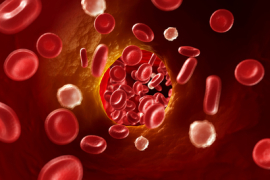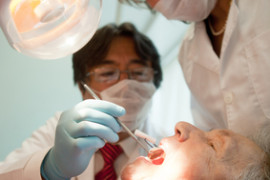Many studies in recent years have investigated the relationship between oral disease and cardiovascular disease. A major focus has been on the most virulent periodontal bacteria, which are already known to incite an inflammatory cascade that reaches many organ systems throughout the body. However, a new study suggests that caries-causing bacteria are also able to translocate throughout the body, and they may play a role in heart valve disease.
In the study, published in the journal Medicine, researchers tested for bacteria in the mouths and heart valves of 42 patients with heart valve disease. They looked for common cariogenic and periodontopathic bacteria in dental plaque, saliva, and cardiac valve samples of patients with cardiovascular disease. They found a common cariogenic bacterium, S. mutans, in 89% of the heart valve samples. Unsurprisingly, researchers noted that a high percentage of the study participants had experienced tooth loss due to caries.
And while periodontal bacteria were found less frequently, only 5 of the heart valve samples were not infected with cariogenic or periodontopathic bacteria. Previous studies have found high levels of the pathogens P. gingivalis and T. denticola in heart plaque—bacteria that are also found in carotid plaque samples.
“Statistically significant difference was found between the frequency of S. mutans and the other investigated micro-organisms in the heart valves….In the past few years, experimental studies have reported that S. mutans has the ability to modify the expression of certain genes influenced by plasma components, in order to obtain advantages while inside the bloodstream.”
According to the study authors, these findings may justify this bacterium’s high ability to settle in the heart valve tissue. They concluded that the presence and high levels of these bacteria may indicate a significant role of bacterial infection in the inflammatory process that leads to progression of heart disease.
From a mountain of research—some of which suggests oral bacteria trigger up to 50% of all heart attacks and strokes—there appears to be a substantial influence of oral bacteria, bacterial remnants, and the inflammatory response to bacteria on an individual’s cardiovascular health. The ability of these bacteria to travel throughout the body makes it essential to address them at their point of entry—the mouth.



